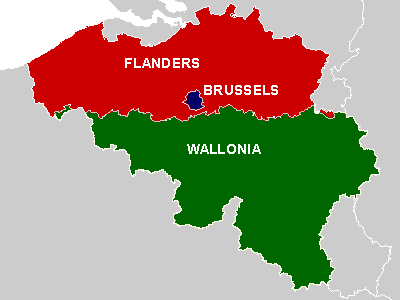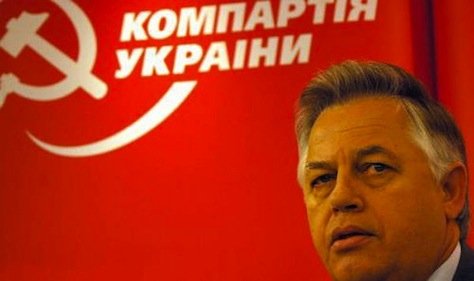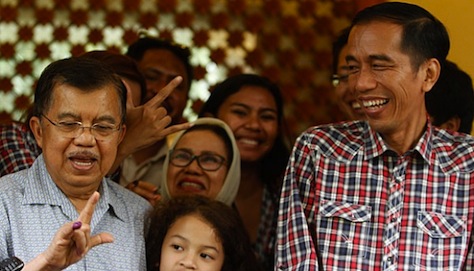You’d be forgiven if you forgot that, on the same day as Europeans elect the European Parliament and Ukrainians elect a president, Belgium, too, will elect a new national government — and the northern, Dutch/Flemish-speaking Flanders and the southern, French-speaking Wallonia will both elect regional governments. ![]()
It’s the first parliamentary elections in Belgium since June 2010, which were so fractured and inconclusive that it took 541 days for a coalition government to form under the premiership of Walloon socialist Elio di Rupo (pictured above).
Polls this time around show that most Belgian parties will win roughly the same amount of support in 2014 as they did in 2010, which means that Belgium could be in for another wrenching year or more of coalition negotiations. Due to the linguistic and regional differences between Flemish and Walloon voters, two completely different sets of parties compete for Flemish and Walloon votes, respectively.
Even though the Scottish and Catalan independence votes later this autumn have attracted wider attention, there’s an equally strong chance that Belgium could cease to exist in everything but name if two consecutive elections fail to give the country a stable government.
Initially, in the decades after Belgian independence in 1830, the French-speaking Walloon region was traditionally wealthier. After World War II, however, Flanders increasingly dominated Belgian economic output, and Flemish leaders have correspondingly demanded greater policymaking autonomy from Belgium’s national government.
Beginning in the 1960, chiefly at Flemish initiative, increasing amount of power have already been devolved to regional government, where regional parliaments were formed in 1981 and their members have been directly elected since 1995.
With a national population of around 10.75 million, there are just over 6 million people in Flanders and just over 4 million people in Wallonia. Within Belgium, each of Wallonia, Flanders and Brussels now have a regional parliament, and there’s now a parliament for German-speaking Belgians. Moreover, the country is split into three regions for administration purposes: Wallonia, Flanders and Brussels, the country’s capital, which is located just within Flanders but which has a French-speaking majority.
Though just a small minority of Flemish voters want independence, many leading Flemish parties have successfully pushed for greater regional autonomy. Another inconclusive election could lead to reforms that give the two regions almost complete autonomy in a confederal arrangement that would leave a shell of a national government that administers foreign policy and controls little domestic policy.
But who will emerge in the regional governments after Sunday’s elections? After all, even under the current state of Belgian federalism, the Flemish and Walloon governments matter just as much, if not more, than the national government.
In Flanders, the contest is largely between the Christen-Democratisch en Vlaams (CD&V, Christian Democratic and Flemish), the traditional Flemish center-right party, which favors greater autonomy for Flanders as a way of avoiding Belgian separation, and the Nieuw-Vlaamse Alliantie (N-VA, New Flemish Alliance), a pro-secession party that hopes to win increasing autonomy for Flanders for the express purpose of hastening independence. Continue reading Is Belgium destined for breakup after another inconclusive vote?




